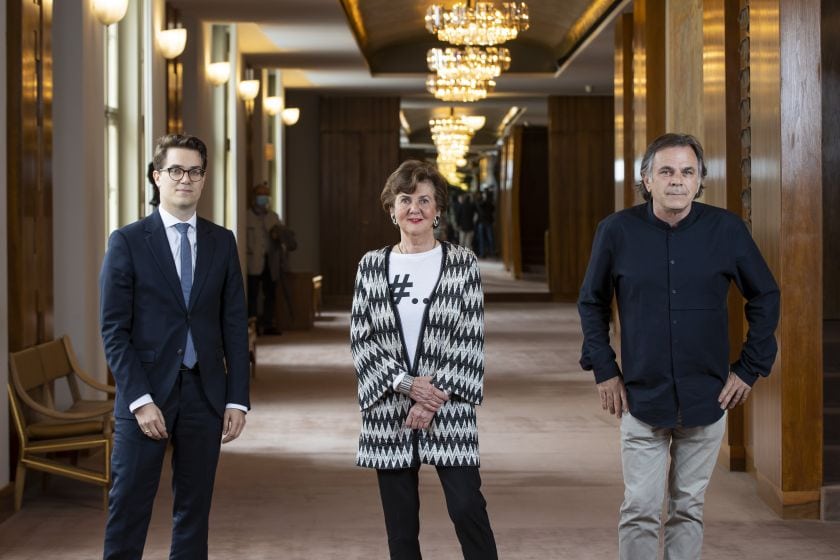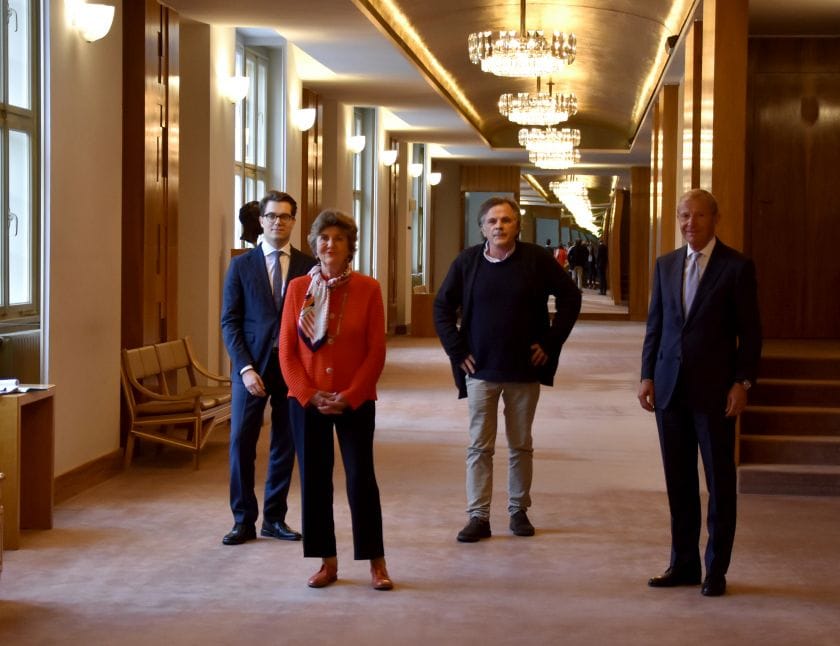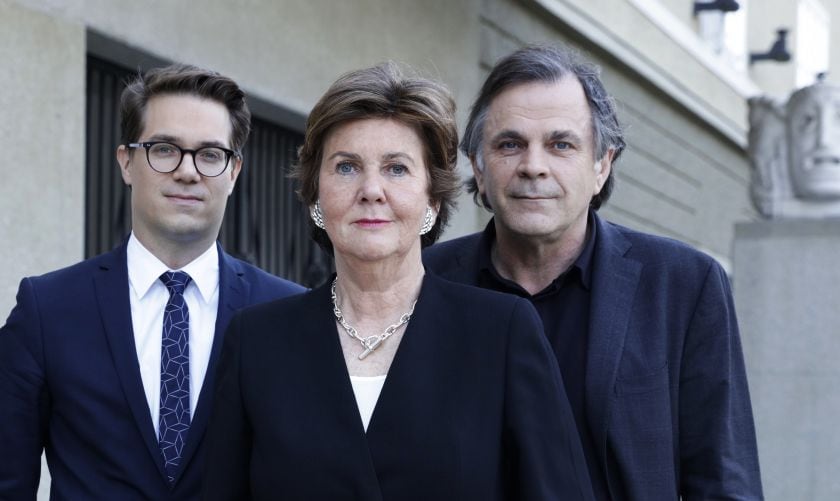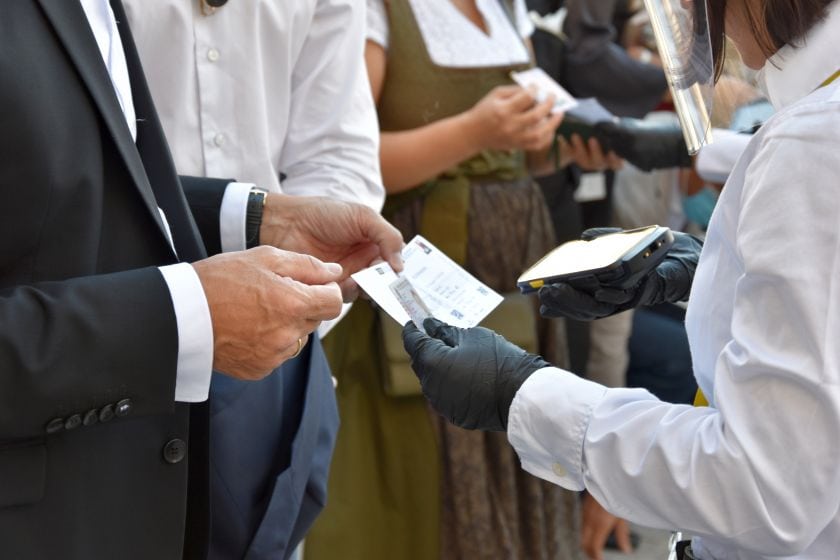Salzburg Festival 2020
© SF/Werner Kmetitsch
Closing Statement
Festival Summer 2020
Video
Videos
Corona virus Information
Frequently Asked Questions
What happens if I am not allowed to leave the country / am infected with Covid / am in quarantine?
If attendance at the performance is impossible due to measures taken in connection with the Covid 19 pandemic, the ticket price will be refunded upon presentation of appropriate proof.
What happens in the event of a performance cancellation?
In the event of a performance cancellation, the customer will only be refunded the ticket price. After two-thirds of the planned duration, the performance is considered to have been completed. In case the performance is broken off earlier the refund is made proportionately. Further claims of the customer are excluded if the Salzburg Festival is not responsible for the reason for the cancellation of the event. The claim for the ticket refund must be stated within 3 months of the date of the cancelled performance. After that any claim expires.
Please note the special regulations for the performances of the Jedermann:
Since Jedermann performances on Domplatz (Cathedral Square) are openair performances, a weather risk cannot be excluded. In the event of rain or an uncertain weather situation (e.g. heavy rain or thunderstorms), the performance may be moved to the Grosses Festspielhaus. After 60 minutes, the performance is considered to have been completed; if the performance is cancelled earlier, the admission fee will be refunded on a pro rata basis. Due to the differences between the venues Domplatz and the Grosses Festspielhaus, it is not possible to guarantee a side-by-side position in the event of a performance of the Jedermann in the Grosses Festspielhaus, or to vary the position in line and spatial positioning in relation to Domplatz.
Further information can be found in our terms and conditions.
Can I return or change my booked tickets?
Ticket orders and purchases are binding in any form. Optional ticket reservations are unfortunately not possible, nor is the return or exchange of purchased or ordered tickets. Ticket returns are only possible for sold out performances for resale on commission; a 15 % commission fee (association members 10 %, patrons free of charge) applies. The Salzburg Festival does not guarantee the resale of returned tickets. If the necessary bank details are available, any return transfers will be made from the day after the respective performance date (in the case of several performances, after the day of the last performance for which tickets have been accepted for resale on commission).
Further information can be found in our terms and conditions.
Where can I find information on the Coronavirus?
How to protect yourself and others, what you should know and what to do in a case of emergency you find on the coronavirus information site of the Austrian Government.
The State of Salzburg has established a website especially for this issue.
Prevention measures set by the Salzburg Festival can be found on this site: Info Coronavirus.
General information on the coronavirus in Austria:
Austrian Agency for Health and Food Safety Österreichisches Sozialministerium (in German only)
The State of Salzburg has established a website especially for this issue.
Prevention measures set by the Salzburg Festival can be found on this site: Info Coronavirus.
General information on the coronavirus in Austria:
Austrian Agency for Health and Food Safety Österreichisches Sozialministerium (in German only)
Are there currently cases of the coronavirus in Salzburg?
Current information on the spread of the coronavirus in Salzburg can be found on the website of Land Salzburg: Coronavirus Salzburg (in German only)
Can I travel to Salzburg?
Please note the travel regulations of the Federal Ministry. Learn more here.
Are there restrictions on public life in Salzburg and the State of Salzburg?
Measures to prevent the spread of the coronavirus affect the public life in Austria. More Information:
https://www.sozialministerium.at/en.html
What should I do if I suspect I may be infected?
Should you seriously suspect that you or someone in your close proximity might be infected and you are within Austria, please immediately contact the Health Services by calling the number 1450. Please make sure to make initial contact only by phone.
Outside of Austria, please contact the local health authorities.
Outside of Austria, please contact the local health authorities.
How can I protect myself from infection?
The links below offer an overview of how to prevent infection with the coronavirus:
Austrian Government on coronavirus prevention
World Health Organization advice for the public
Die Gesundheitsnummer (in German only)
Austrian Government on coronavirus prevention
World Health Organization advice for the public
Die Gesundheitsnummer (in German only)
May I pass or sell my tickets?
Generally you can pass on your tickets. However, the purchase for commercial or trade resale, as well as the transfer of tickets is prohibited without the prior consent of the Salzburg Festival. Furthermore, it is not permitted to offer tickets to the public via Internet auctions and marketplaces as well as on the radio, in the press or in any other way. Passing on discounted tickets (in particular youth tickets, press tickets) is prohibited.
Further information can be found in our terms and conditions.
What happens in the event of a performance cancellation?
In the event of a performance cancellation, the customer will only be refunded the ticket price. After two-thirds of the planned duration, the performance is considered to have been completed. In case the performance is broken off earlier the refund is made proportionately. Further claims of the customer are excluded if the Salzburg Festival is not responsible for the reason for the cancellation of the event. The claim for the ticket refund must be stated within 3 months of the date of the cancelled performance. After that any claim expires.
Please note the special regulations for the performances of the Jedermann:
Since Jedermann performances on Domplatz (Cathedral Square) are openair performances, a weather risk cannot be excluded. In the event of rain or an uncertain weather situation (e.g. heavy rain or thunderstorms), the performance may be moved to the Grosses Festspielhaus. After 60 minutes, the performance is considered to have been completed; if the performance is cancelled earlier, the admission fee will be refunded on a pro rata basis. Due to the differences between the venues Domplatz and the Grosses Festspielhaus, it is not possible to guarantee a side-by-side position in the event of a performance of the Jedermann in the Grosses Festspielhaus, or to vary the position in line and spatial positioning in relation to Domplatz.
Further information can be found in our terms and conditions.
Is Jedermann performed on the Domplatz (Cathedral Square) irrespective of the weather?
Since Jedermann performances on Domplatz (Cathedral Square) are openair performances, a weather risk cannot be excluded. In the event of rain or an uncertain weather situation (e.g. heavy rain or thunderstorms), the performance may be moved to the Grosses Festspielhaus.
Due to the differences between the venues Domplatz and the Grosses Festspielhaus, it is not possible to guarantee a side-by-side position in the event of a performance of the Jedermann in the Grosses Festspielhaus, or to vary the position in line and spatial positioning in relation to Domplatz.
What do I need to know about the placement at the venues?
Seats are allocated in accordance with the legal framework. The allocated seats must be strictly adhered to. However, the Salzburg Festival reserves the right to provide seats within the same category other than those listed on the ticket for organisational reasons. Instructions of the hall staff must also be followed.
Detailed information on the venues can be found at www.salzburgfestival.at/en/venues
Detailed information on the venues can be found at www.salzburgfestival.at/en/venues
Does the Whitsun Festival 2021 take place?
The Salzburg Whitsun Festival 2021 will take place. The strategy for the 2021 Whitsun Festival remains the same as in the past, highly successful Festival year: under the primacy of health, the goal is to implement a festival which is artistically meaningful and economically viable.
Information on the prevention plan can be found here.
Learn more about the Whitsun Festival 2021
Information on the prevention plan can be found here.
Learn more about the Whitsun Festival 2021
I have a question about my tickets for the 2021 Whitsun Festival
Please find information about your tickets in the login MY FESTIVAL. If you have any further questions about your tickets, please contact our ticket office. Opening hours and contact information are available here.




